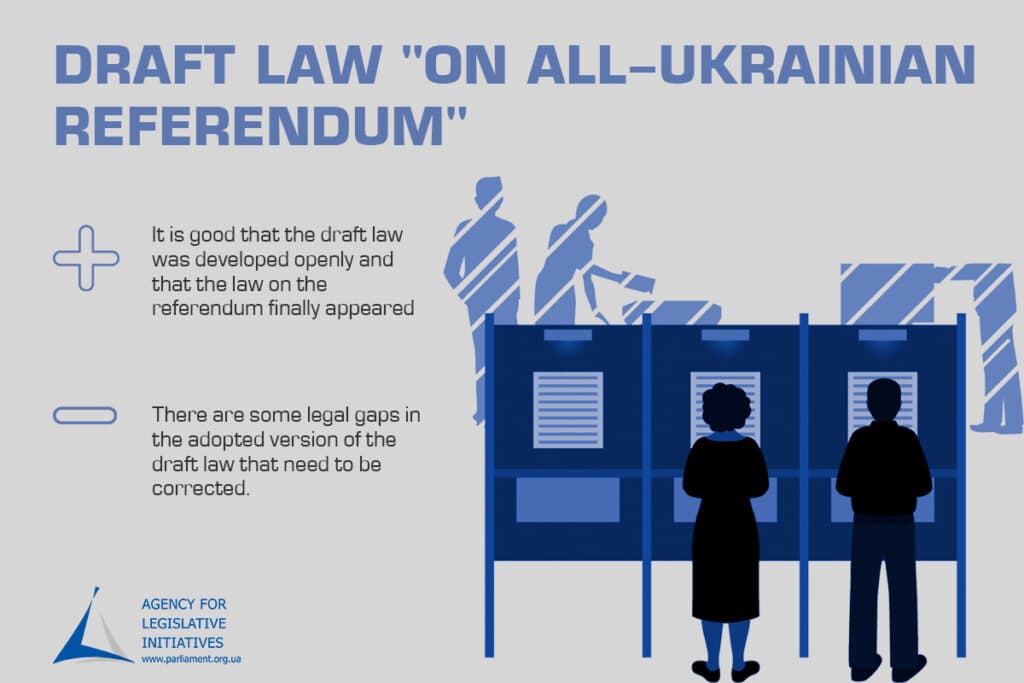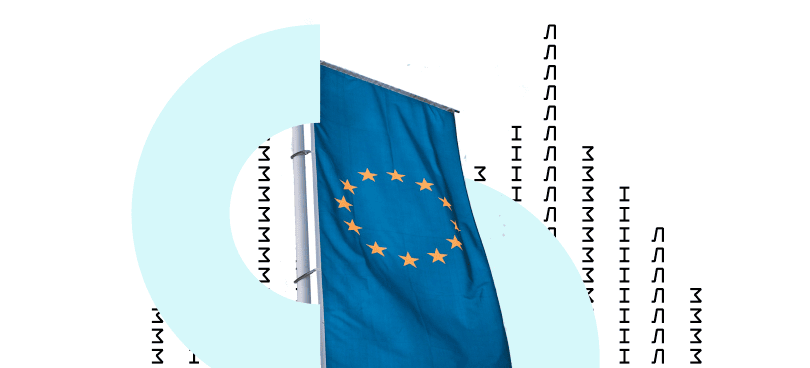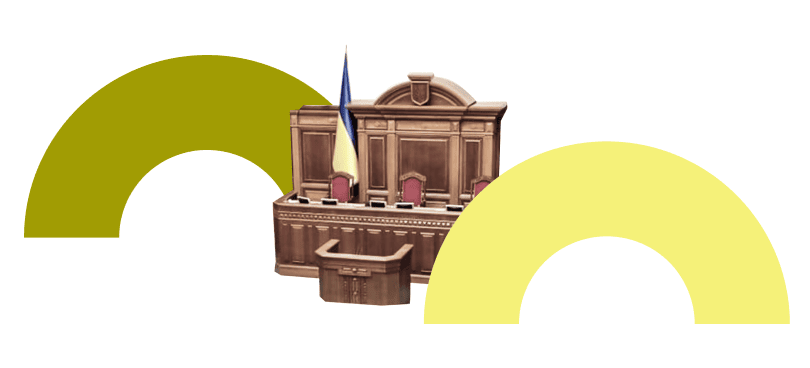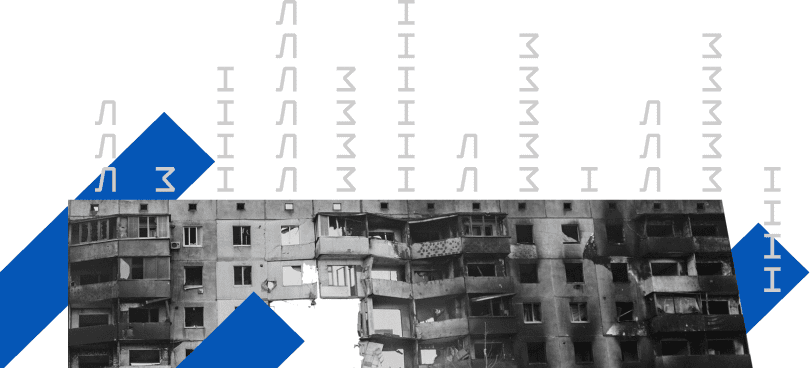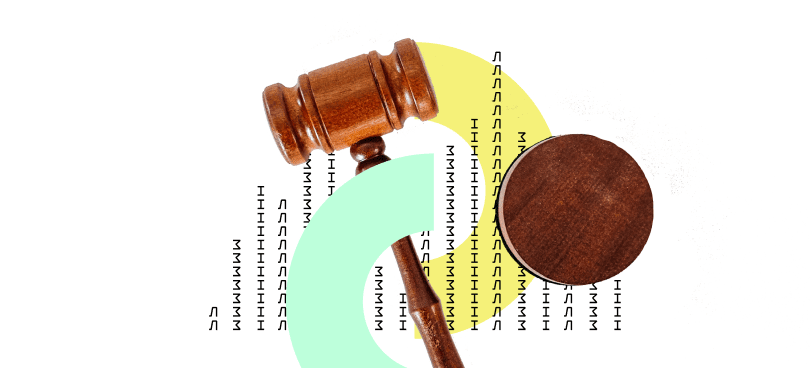On January 26, the Verkhovna Rada adopted the draft law “On the All-Ukrainian Referendum” in the second reading and as a whole. The Agency for Legislative Initiatives has analyzed it and is ready to share the results.
The adopted draft law has more pros (or gains) than cons (or threats), in short. The draft law “On the All-Ukrainian Referendum” is, without any doubt, better than the previous unconstitutional and unconstitutionally adopted law on the national referendum. And the final version, adopted in the second reading, considers some of the comments and is, therefore, better than the first reading version. According to Article Thirty-eight of the Constitution, citizens of Ukraine are guaranteed to participate in the all-Ukrainian referendum. According to the Basic Law, without a referendum, it is impossible to change the territory of Ukraine and make changes to I, III, and XIII Chapters of the Constitution. That is, the need to adopt a law on a referendum is conditioned by constitutional norms. However, the adopted draft law should not be idealized: it has some shortcomings, and 27 pages of comments of the Main Legal Department can serve as confirmation of this.
The draft law has been developing and editing with the involvement of an expert community for more than a year. It partially considers the ODIHR / OSCE and the Venice Commission’s recommendations, expert comments on the draft of the first reading. Certainly, it has very detailed and well prescribed procedural mechanisms. Therefore, many specialist organizations respond positively to this approved version. And although the draft law “On the All-Ukrainian Referendum” has many positives, some shortcomings need to be addressed to understand the risks and limitations that we may face in the implementation of this law.
The adopted draft law does not protect against populist issues or problems that lead to a “split” of society.
The draft law “On the All-Ukrainian Referendum” does contain several safeguards: for example, the issue of the death penalty for MPs and officials for corruption or the reduction of taxes for Ukrainians cannot be put to a referendum. But other populist issues can be raised, such as the abolition of benefits for MPs, providing free housing for all citizens, etc. These may be questions that usually split Ukraine, the classic set – whether Bandera/Shukhevych/Zhukov/some red commissar is a hero of Ukraine or whether it is worth giving the status of the state language to Russian, etc. These matters may be national importance issues, and the adopted draft law on the referendum does not protect against them. In some countries, there is a practice where the authorities can adjust or at least influence the wording of the question. The Venice Commission recommended this option. But Ukraine has taken a different path: by Article 30 of the adopted version of the law, the text of the question submitted to the referendum can not be changed after its approval by the initiative group.
Such a norm was probably added to prevent abuse of power, which could harm “good” and “people’s” initiatives. However, the referendum will instead be a tool for organized political groups, given the signature collection procedure’s peculiarities. These political groups will be able to use populist issues that the government will not be able to correct. The adopted draft law does not consider the Venice Commission’s recommendations on the unity of form, content, and hierarchy of the referendum issue.
The context is also important.
The adopted version of the law creates several safeguards against manipulation and possible attempts to infringe on the democratic regime. However, it is worth remembering the context in which Ukraine finds itself: we have problems with the rule of law, we are in a state of actual war, economic crisis, and only seven years have passed since the potential dictator fled to Russia.
In these circumstances, a referendum, no matter how perfect the law is, can be used to increase instability and establish attempts to restrict citizens’ rights and freedoms and undermine democratic institutions.
The Venice Commission also mentions the danger of referendums in its recommendations in terms of confrontation between the executive power and the parliament.
A referendum is often called a voice of the people, and the possibility of repealing laws is called a “right to revolt”.
In Ukraine, the referendum on the adopted draft law is not like that. The referendum procedure is quite regulated.
You need to go through many verification procedures and collect and submit many different types of documents.
The initiation of a national referendum is very resource-intensive: it is necessary to collect 3 million signatures in not less than 2/3 of regions and not less than 100 thousand signatures in each region. For about half of them 100,000 people is about 10% of the population – that is, it is necessary to collect the signatures of every tenth person living in the region. All this must be done in 90 days. According to paragraph 6 of Article 32 of the draft law, signatures can be compiled only by members of the initiative group and only in paper form, as the rules on applying for support of the referendum initiative in electronic form were excluded during the consideration of the draft law in the plenary hall, arguing that these norms are unconstitutional and this mechanism could be opaque. So, on average, you need to collect 33,000 signatures on paper per day.
Will volunteers be able to organize such a process? It isn’t very likely, even if we believe in the self-organizing ability of Ukrainians. It is rather possible for highly organized political groups with funding, human and time resources. Regardless of who manages the referendum – volunteers or political groups – the authorities can, if they wish, disrupt the process. The Central Election Commission (the CEC) may not register something, not accept any documents, or find any violations in the complicated procedure of initiating a referendum. It is still possible to impose a state of emergency in one of the regions (for example, if forests are burning in the Luhansk region or there are floods in Zakarpattia) and disrupt the referendum process. It means that if the [anti-people/dictatorial] government wants to prevent a referendum, it will do so.
Therefore, we should not think that a referendum can become a viral initiative or that the people can use a referendum to express dissatisfaction with the adoption of a law. If the referendum is organized, it will be initiated by capable political groups in the absence of categorical disagreement of the authorities (and given the previous experience of Ukraine, the initiation of a referendum will most likely be done by the President himself).
The planned electronic voting also raises many concerns.
The adopted draft law establishes that electronic voting will be possible only after the entry into force of the law on innovative technologies for electronic (machine) voting. It is not clear from the adopted draft law on referendum what electronic voting will be like – whether it will be special polling machines for polling stations, or it will be voting at home from a personal computer through a created site, or the Ministry of Digital Technologies will present a separate application. If the voting is remote (from a computer via a website), then there are many problems with compliance with the voting principles set out in Articles 6-13 of the law.
The referendum must provide universal, equal, direct, free, voluntary, secret, personal, and one-time voting. And remotely, it will be difficult to trace who is voting, whether there are facts of pressure, bribery, how many times one person can vote, and so on.
In Europe, e-voting is used only in isolated cases. The Venice Commission also mentioned the danger of electronic voting in terms of technical reliability, transparency, security, and secrecy in its conclusion.
The adopted draft law does not establish an absolute ban on holding two, three, or more referendums at the same time.
Such a ban is only for holding a referendum simultaneously with regular elections of various kinds. Therefore, although supporters of the adopted law “On the All-Ukrainian Referendum” deny the possibility of mass use of referendums, we should not rule out using this tool by unscrupulous initiators to obstruct other referendums and clog the media space.
According to the working group members for the development of this draft law, if holding one referendum costs 1-2 billion hryvnias, holding several referendums a year does not bring anything good to the Ukrainian budget.
The adopted draft law prohibits only the initiation of several referendums on one issue at a time. Dishonest initiators can also use this norm: if you are the first to register an initiative group in the CEC, a referendum on a particular issue can be blocked. It does not matter how many signatures such a fake initiative group will collect. Those who want to hold a referendum will have to wait at least 90 days to register their initiative.
Many questions are raised by the rules on the repeal of the law or its provisions.
In some European countries, the law’s repeal is possible shortly after its adoption, even before it has wholly entered the state’s legal field.
Repealing any law or its provisions can be pretty dangerous because it unbalances the legal system and leaves gaps in it.
There may be a legal vacuum (a situation where certain social relations are not regulated by law), which can not be filled. It happens for many reasons. On the one hand, MPs may not count on the success of the cancellation referendum and, accordingly, not prepare for its consequences (if we recall the attitude to the Brexit referendum and the corresponding level of readiness of MPs in the homeland of the parliamentary system, there are reasonable doubts about the predictive capabilities of Ukrainian MPs). On the other hand, it is essential to remember that passing law is usually a difficult compromise for many political groups and the more important the law is, the harder it is to reach such a compromise. And at the time of repealing the law, such a compromise may not exist, which will lead to a legal vacuum.
Repeal of laws through referendums is also questionable in terms of violation of the constitutional competence of the Verkhovna Rada of Ukraine, as “the only legislative body in Ukraine is the parliament – the Verkhovna Rada of Ukraine”, and it is the powers of the Verkhovna Rada to adopt laws, including the abolition of other laws. The Venice Commission recommended giving parliament a role in the referendum process on repealing laws: for example, providing a text of a law that would replace the text of a repealed law if the referendum was successful. However, this was not done.
Violation of the Verkhovna Rada’s constitutional competence may be the reason for declaring the law on referendum unconstitutional.
The procedure of adopting the draft law “On the All-Ukrainian Referendum” was also problematic. During the preparation for consideration and consideration of the draft law in the second reading, the MPs deviated from some Verkhovna Rada Rules of Procedure norms without applying the ad hoc procedure provided for in Art. 50 of the Rules of Procedure.
It can be considered a violation of the Rules of Procedure and thus undermine the adopted draft law’s legitimacy.
The repeatedly identified problem of the Rules of Procedure of the Verkhovna Rada, which often leads to an imbalance in the text of draft laws in the session hall, has once again manifested itself. Ironically, the imbalance of the law’s internally agreed text due to the removal of some of its provisions occurred with the adopted version of the law on referendum. In particular, the wording of the draft law, which was adopted in the first reading, in paragraph 2 of Art. 4 contained the following somewhat contradictory provision:
“The decision made at the all-Ukrainian referendum can be changed only by the all-Ukrainian referendum not earlier than in three years from the date of its acceptance”.
Before the second reading, the committee changed this provision to another:
“A new all-Ukrainian referendum on issues previously supported in the all-Ukrainian referendum may be held not earlier than three years from the date of announcement of the results of the relevant all-Ukrainian referendum”.
“A new all-Ukrainian referendum on issues that were not previously supported in the all-Ukrainian referendum may be held not earlier than one year from the date of announcement of the results of the relevant all-Ukrainian referendum”.
However, at the very end of the review of the amendments, V. Vyatrovych confirmed these amendments. Voting to confirm the first amendment failed (9 votes were not enough), the second amendment still managed to get the required votes. Therefore, paragraph 2 of Art. 4 of the adopted law says:
“A decision made in an all-Ukrainian referendum may be changed only by an all-Ukrainian referendum not earlier than three years from the date of its adoption.
A new all-Ukrainian referendum on issues that were not previously supported in the all-Ukrainian referendum may be held not earlier than one year from the date of announcement of the relevant all-Ukrainian referendum results”.
It is quite possible that the draft law “On the All-Ukrainian Referendum” adopted later in the second reading and as a whole will be amended and corrected. Still, now, this has several ambiguous consequences. Firstly, the first item of paragraph 2 of Art. 4 contradicts the second item of paragraph 2 of Art. 4 and item 2 of Art. 122, because in one place, any decision cannot be changed for three years, and in another – that an unsupported decision can be put to a referendum in a year. Secondly, it turns out that the laws/some of their provisions, repealed by the referendum, will be repealed forever because of the referendum’s decision, following the first item of paragraph 2 of Art 4, can be changed only through a referendum.
A change in the decision to repeal the law is the adoption of a law. According to the law “On the All-Ukrainian Referendum”, laws in a referendum can only be repealed, not adopted. Third, the change in the decision not to repeal the law is to repeal the law.
Given that the decision of the referendum can be changed only in a referendum, then the law, which was not repealed once, receives additional “protection” – now it can be revoked only in a referendum.
And while whether the repeal of laws is an interference with the Verkhovna Rada’s constitutional competence can be a matter of debate, the repeal of laws forever and the special protection of laws look more clearly like such an interference.
The situation with the funds of the all-Ukrainian referendum and the NGOs in this process is also quite unclear.
The fact is that in the wording adopted in the first reading, NGOs could form these funds at their own expense. Unlike political parties, NGOs have no restrictions on the sources and amounts of contributions. It means that the entire structure of the control over the financing of the referendum (which provides for the restriction of funding sources and the size of the contribution from one source) – was destroyed. After all, some oligarch or a hostile state could contribute a large sum of money to the NGO’s account. This NGO could already transfer these funds to the account of its all-Ukrainian referendum fund. Many experts and even the Venice Commission have drawn attention to this problem. And in the second reading of paragraph 3 of Art. 72 the opportunity to finance NGOs’ funds at their own expense was removed, but paragraph 7 of Art. 72 is still about this possibility. How this rule will be applied in practice is not entirely clear, so the risk of non-transparent funding provided by large tranches from dubious sources through NGOs remains.
Summing up, a referendum is a tool that can be used with both good and bad intentions. It should not be assumed that with the current design, the referendum will be an instrument of the people’s will. Organized political groups or the President will definitely use it.
Despite the safeguards, the adopted draft law contains dangers – among them electronic voting (although in the final version, it became a dead norm) and a legal vacuum in place of repealed norms. The adopted law “On the All-Ukrainian Referendum” has some technical shortcomings, all of which were not mentioned in our analysis, but some of which look pretty threatening – unwavering referendum decisions and non-transparent funding through NGOs. These shortcomings can be corrected in the future, so it remains to hope for Ukrainian lawmakers’ prudence.

